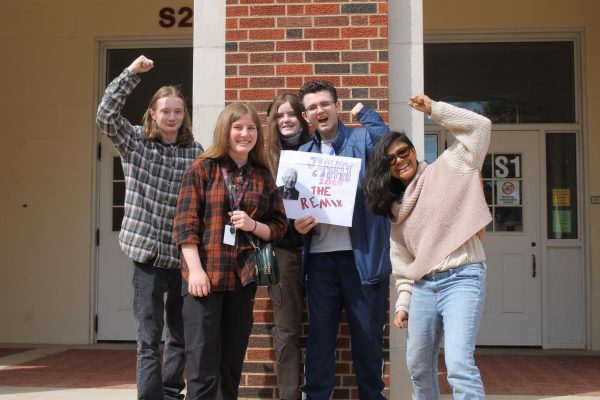The book ban on “The Hate U Give”
Angie Thomas’s portrayal of her teenage characters in “The Hate U Give” has come under fire in the small town of Katy, Texas. Katy Independent School District superintendent Lance Hindt appears to have openly disregarded his district’s own rules to pull “The Hate U Give” from the shelves of the district’s schools, despite the book not being officially banned.
A review process is currently underway regarding the book’s status after parent Anthony Downs complained of inappropriate language and drug use in the book. The complaint was made on Nov. 6, 2017 at a board meeting for the district of Katy Independent schools.
“I did read some of the pages,” Downs said. “I read 13 pages and was very appalled.”
“The Hate U Give” was at the top of the New York Times bestseller list for 38 weeks and is currently being made into a movie starring Amandla Stenberg. “The Hate U Give” was published on February 28, 2017 and follows protagonist Starr Carter, a 16 year old black high school student who is drawn to activism after she witnesses a white police officer shooting her unarmed best friend.
“There’s a specific policy, and it’s clear that they did not follow it, that the superintendent made a unilateral decision,” said director of the American Library Association Office for Intellectual Freedom James LaRue. “The school board has great latitude and superintendents do as well, but skipping over your own policy is something for which they should be held accountable.”
LaRue stated that those concerns are shared by librarians in the district, 19 of whom signed a letter protesting Hindt’s decision to pull the book. But despite both internal pushback and an ongoing outcry on Twitter, there has been no explanation from the superintendent’s office.
It remains to be seen whether Hindt’s decision will stand in the face of both internal pressure and external challenges, including the looming possibility that it runs into conflict with the First Amendment.
“This has gone all the way up to the supreme court – you can’t remove a book just because you don’t like the perspective,” LaRue said. “And what we see in the [Office for Intellectual Freedom] is that people use the excuse of vulgarity to suppress the ideas being talked about.”

This is my third year as part of the Bagpipe staff.
What is your favorite music genre?
Alternative rap
What do you do in your free time?
Play basketball and hang out with friends
What is your favorite television show?
Breaking Bad












